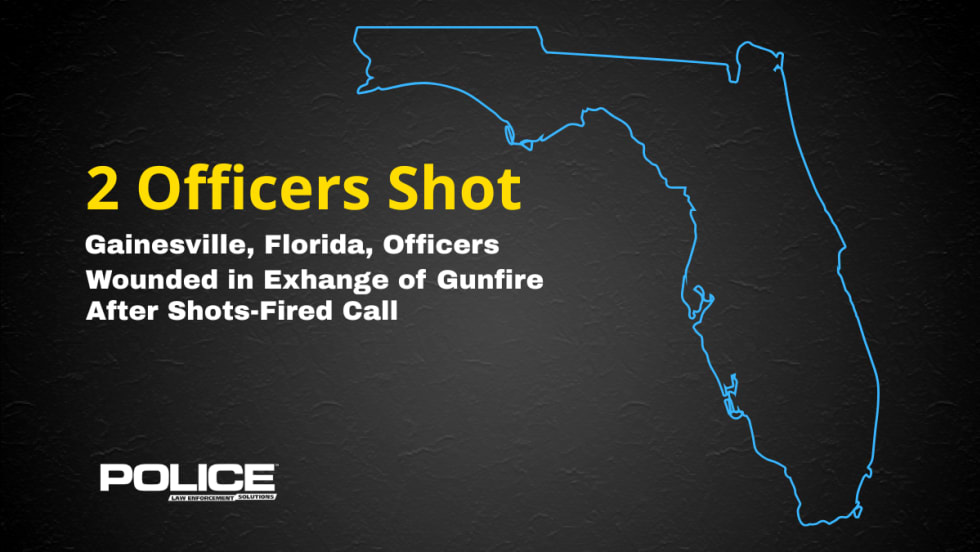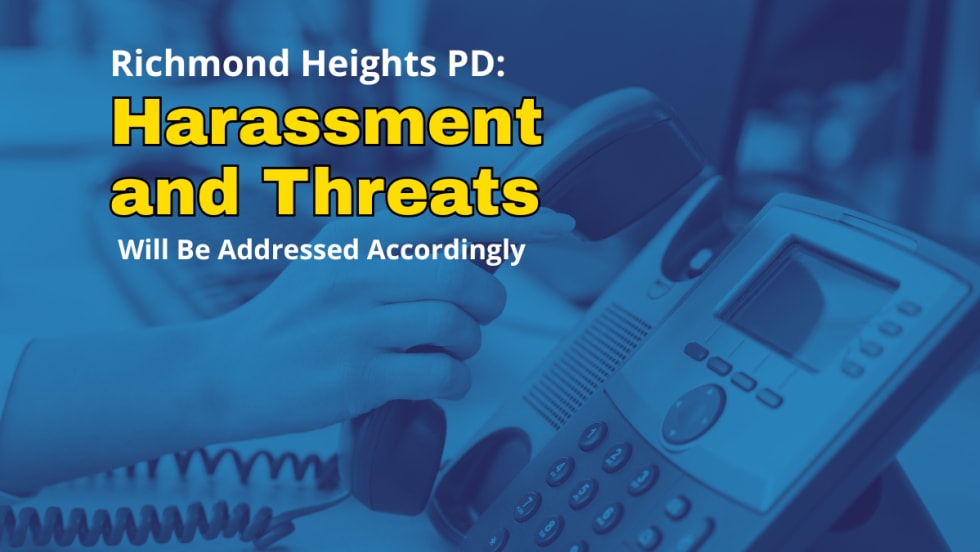Communications may be the backbone of law enforcement, yet it can also be its most technologically confusing, politically charged and seemingly insoluble problem in the adrenaline-fueled chaos of a multi-jurisdictional or mutual-aid situation.
Nobody in this small Southwestern town could figure out why, over the years, the police radio system ceased to function. Its demise was so excruciatingly slow, nobody seemed to notice. But ever so gradually a working communications system turned into one big dead spot. The problem was not the interference of other public safety channels - a problem often caused when the radio transmitter drifts off frequency. It wasn't even the fault of the locals, who periodically amused themselves by firing the odd shot into the coaxial cable. The problem, as the chief discovered after calling in a team of experts who tested the system with state-of-the-art equipment, was the sloppy maintenance performed by the communications service company. What was once a 100-watt system was producing out one measly watt of power.
Communications may be the backbone of law enforcement, yet it can also be its most technologically confusing, politically charged and seemingly insoluble problem in the adrenaline-fueled chaos of a multi-jurisdictional or mutual-aid situation.
Such was the case in Pullman, Wash., and its surrounds following a decision by Washington State University to ban alcohol on campus. Students protested by starting an on-campus party that resulted in a riot. More than 40 officers were injured and several were hospitalized.
A number of agencies responded, including the Pullman police, the Whitman County Sheriff's Department, the Moscow (Idaho) Police Department, and the Washington State Patrol. Although several agencies had a signed mutual-aid agreement prior to the riot, none of the departments had trained together. To make matters worse, communication among the 140 responding officers was almost impossible. Different radio frequencies meant "You couldn't communicate with the guy next to you if you got split up," said Capt. Don Lanpher, of the Moscow Police Department. "We couldn't call their communications center. Normally we would call our PSAP and they relay the call. But with things happening so fast, we couldn't do that."
But How'd It Get This Way?
These stories are not unusual; everybody has one. Every chief, every police administrator and every police officer has experienced some kind of communication. This summer the Los Angeles Police Department balked at paying for its shiny new communications system because officers could not communicate with one another. This was especially true for those in radio cars trying to talk to officers in a helicopter overhead. Fingerpointing ensued, with the agency refusing payment until the vendor made it right, and the vendor maintaining the officers just weren't used to the new system.
In Salem, Oregon, a regional records management system shared by 22 agencies in five counties has been in place for many years. But different radio frequencies mean the only form of communication among agencies is through a car-to-car mobile data system. "We can't even talk to our own fire department on the radio," said Lt. Mark Caillier, chief information officer for the Salem Police Department. "Salem, which spans two counties, is on UHF. Both counties are on VHF and fire is on VHF and 800 MHz. So our best form of communication is our mobile data system."
The Law of Unintended Consequences
Technology has surely made police work easier and more efficient, even as it brings with it other, often unexpected problems. For example, a 1998 study of the current state of communications revealed that within five years agencies planned to use cell phones with greater frequency. This certainly would circumvent the dilemma of disparate radio systems, but experience has shown that dependence on cellular technology might not be a viable option. In the aftermath of a school shooting in Southern California, officers tried to communicate with each other via cell phone. But the airwaves were already jammed with panicked students and parents trying to reach each other on their own cell phones.
Technology has also given public safety the opportunity to move to 800 MHz. While this offers increased power, it also shortens the distance a signal can travel. Repeaters are required over large areas, which can be cost prohibitive for smaller agencies. It is also impossible for agencies on low and high bands to communicate with 800 MHz radios.
It doesn't help that public safety is always behind the curve when it comes to communications technology. The reason, experts say, is because the money is in the private sector, in supplying services for cell phones, pagers, and wireless Internet connections to the public. Vendors are not exactly eager to solicit the business of organizations that routinely plead poverty, whose requests for proposals leave almost no wiggle room and whose negotiators can wring the profit out of the most stalwart of vendors.
That being said, what does the future of communications look like? Murky, confusing and with enough options to cramp the brain of a communications genius.
Spectrum: Valuable real estate, it has been called. A finite resource, becoming ever more precious with the proliferation of cell phones and pagers. In 1998 the Federal Communications Commission approved the allocation of 24 MHz, which essentially doubled the available spectrum.
Total radio spectrum, which represents 3,300 frequencies, is such a hot commodity that commercial providers have offered thousands of dollars to police agencies, hoping to buy frequencies. They have been known to approach smaller agencies or cities and offer $20,000 for a frequency pair. What the agency or city officials don't know is that frequency might be worth as much as $250,000.
The FCC is working to increase spectrum availability. It is "refarming" radio channels below 512 MHz by cutting bandwidth in half and reducing it by half again in 2006. This should not adversely affect public safety, since the use of microprocessors and sophisticated software techniques has increased spectrum efficiency by allowing more information to be sent through less bandwidth.
The FCC also is taking frequencies dedicated to television channels 60-69 and reallocating them for public and private use. It will make available another 2,000 channels. Because 700 MHz butts up against the 800 MHz block, radios that are programmed for 800 MHz should also work on 700 MHz.
Regional Systems - Regional communications systems have been a rousing success in some areas of the country and an utter failure in others. Following the university riot, a coalition of agencies in Washington and Idaho studied the idea and even issued a Request For Proposal for a regional communications center. But the idea was scrapped when it became a political football. "We're talking about two states, several county commissioners, chiefs, sheriffs and council members. Who will pay for it? Who will we tax for it? What type of equipment would we buy? Where would we locate the new communications center? Who will manage it?" said Moscow PD's Capt. Lanpher. "But it became more than a political issue. There were serious concerns about whether it would be an improvement on the current level of efficiency. If efficiency did improve, would that alone justify the cost? We also have people who worry that if they share in a consolidated communications center, they will lose some of their control."[PAGEBREAK]
Yet the San Diego Regional Communications Center successfully dispatches 170 agencies from a single location. Similar communications partnerships are shaping up in Utah and Colorado. One reason is that agencies are tired of being slaves to manufacturers' proprietary systems. Another reason is the enormous cost of buying, owning and maintaining a communications infrastructure. According to Tom Tolman, communications director at the NLECTC office in Denver, regional partnerships are a move away from owning and controlling every aspect of a communications system. In Florida, for example, the state is considering turning its radio towers over to its communications service provider and then leasing access to the system. The only thing state and local agencies would own is the peripheral equipment: radios, cell phones, pagers and the like. In exchange for the provider's long-term ownership or long-term lease of the towers would be the provider's ability to use the tower for other business. In addition, the provider would refund a portion of the state's lease payments back to the state.
Patches and Switches - An admittedly interim solution is a "patch," like the Border Tactical Communications System (BORTAC) in San Diego. It is the modern equivalent of a telephone switchboard, and is activated when one agency requests a patch to another. The dispatcher at the central location simply uses a mouse to connect icons representing the agencies on a computer screen. Voice transmissions come into the central location and are remodulated and transmitted in a voice format appropriate for the receiver's radio. Low band, VHF, UHF, conventional, trunked and 800 MHz systems all communicate directly with one another, without delay or the potential error of the traditional officer-to-dispatcher-to-dispatcher-to-officer communication. BORTAC connects 16 federal, state and local agencies in the area and has prompted the formation of RIO-Com, a similar patch that connects 11 agencies in the South Texas area. Similarly, the ACU-1000, located at the Alexandria (Va.) Police Department, is an experimental switch that allowed the Washington D.C. Metropolitan Police Department, the U.S. Park Police, the U.S. Secret Service, the FBI and the U.S. Capitol Police to communicate with one another for the first time during this year's inauguration ceremonies.
Internet ... The Final Frontier?
Some believe the Internet may provide the ultimate solution for voice communications and data transmission. Where the Internet once had the ability to transmit only text and graphics, it is now sophisticated enough to transmit voice.
"The ability to send voice over the Internet is opening up a whole slew of capabilities for public safety," Tolman said. "Texas, for example, is a huge area. How do you get transmitters to cover it? A microwave manufacturer says give us the dollars and we'll give you point-to-point microwaves. But that's expensive. With voiceover IP, dispatch centers can bring up transmitters through the Internet. That technology, I predict, will revolutionize communications. States with fewer populations will be able to increase their coverage without investing huge amounts of money."
In the interim, agencies across the country are finding their own solutions. They are creative and self-sufficient. They don't expect some federal agency to come in and fix it for them. In Washington and Idaho, training became the low-tech solution when the idea for a regional communications system tanked, Lanpher said. "We train in teams and in multi-agency incidents like the riot, we respond in teams. At least one member has a radio that can communicate with their own agency. The others don't even turn their radios on. We don't split up and we communicate with a lot of hand signals. It's worked well for us."
Today's agencies are wise enough to do their homework. They no longer depend entirely on a salesman's pitch or a manufacturer's data sheet. They are also more cost conscious. As technology advances and the commercial market gets saturated, manufacturers have looked at law enforcement with eager eyes. But where agencies once were at the mercy of a manufacturer, the tables are turning. With so many options, manufacturers are willing to cut prices and work out cost-effective solutions not available before.
Advances in technology have opened up an entirely new world of communications, some of it very complex. In its report, "Understanding Wireless Communications in Public Safety: A Guidebook to Technology, Issues, Planning and Management, the NLECTC predicts: "At no time in the history of public safety communications have so many options been available. Technological advances and regulatory changes have combined to make selecting a communications system very complex. As we move into the future, it is unlikely to get any better."
On that bright note, law enforcement is encouraged to be diligent in its research, careful in its expenditures and suspicious of anyone who says they have the perfect answer ...
Resources:
Understanding Wireless Communications in Public Safety: A Guidebook to Technology, Issues, Planning and Management, August 2000, (NCJ 180211), published by the National Law Enforcement and Corrections Technology Center. Log on to nlectc.org, or ncjrs.org to download.
Federal Communications Commission: www.fcc.gov, 888-225-5322. For the FCC rules, go to www.gpo.gov at the Government Printing Office.
Public Safety Wireless Network: www.pswn.gov, 800-565-7796. PSWN is a program created by the Federal Law Enforcement Wireless Users Group to address interoperability issues among public safety agencies.
National Telecommunications and Information Administration (NTIA), U.S. Department of Commerce: www. ntia.doc.gov, 202-482-7002, 1401 Constitution Ave. NW, Washington, D.C. 20230. The NTIA works with federal, state, and local public safety agencies to address future spectrum requirements.
Telecom Glossary 2000: The definitive, albeit somewhat technical, glossary of telecommunications terms. Go to www.its.bldrdoc.gov/project/t1glossary2000.
National Institute of Standards and Technology (NIST): www.nist.gov, Office of Law Enforcement Standards, 100 Bureau Drive, M/S 8100, Gaithersburg, MD 20899, 301-975-2757, or oles@nist.gov. As the primary standards setting body in the U.S., NIST, in conjunction with the Office of Law Enforcement Standards, has undertaken the development of wireless telecommunication and information technology standards, along with guidelines for interoperability and information sharing, and the interim analysis of current and emerging communications technologies.
National Public Safety Telecommunications Council (NPSTC): www.npstc. du.edu; NPSTC, Support Office, 2050 East Iliff Avenue, Denver CO 80208, 303-871-2439. NPSTC is a federation of associations representing public safety telecommunications. Its purpose is act as a resource and advocate for public safety telecommunications issues.
Lois Pilant Grossman gave up gainful employment as the editor of a police-related magazine to write regularly for the NIJ. Now she has seen the light and decided to use her expertise in technology to explain complicated things to the editor of POLICE.












